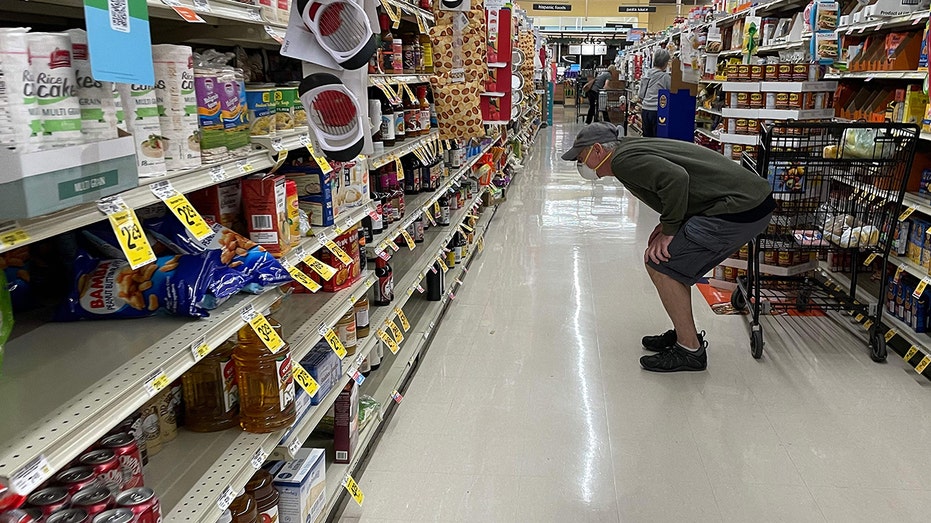Fed's preferred inflation gauge rose 4.9% in April, still near 40-year high
Inflation gauge above 2% for 13th consecutive month
Inflation ‘eating up’ wage gains for workers: Tyler Goodspeed
Former Council of Economic Advisers Acting Chairman Tyler Goodspeed provides insight into how the Biden administration is handling the U.S. economy.
A key measure of annual inflation that is closely watched by the Federal Reserve continued to run hot in April as widespread supply disruptions, extraordinarily high consumer demand and worker shortages fuel rapidly rising prices.
The personal consumption expenditures price index, which measures costs that consumers pay for a variety of different items, showed that core prices – which exclude the more volatile measurements of food and energy – soared 4.9% in the year through April, according to the Bureau of Economic Analysis.
HOW THE FEDERAL RESERVE MISSED THE MARK ON SURGING INFLATION
That measurement is the Fed's preferred gauge to track inflation; it marks the 13th consecutive month the gauge has been above the central bank's target range of 2%. Still, it was slightly below March's measurement of 5.2%, and is down from the 39-year high of 5.3% that was recorded in February.

A man shops at a Safeway grocery store in Annapolis, Maryland, on May 16, 2022. (Jim Watson/AFP via Getty Images / Getty Images)
In the one-month period between March and April, core prices soared 0.3%, suggesting that prices are leveling off, but are not yet falling. The slowdown in inflation in April largely stemmed from a drop in the price of gasoline and other energy sources. Gas prices soared in March as a result of the Russian invasion of Ukraine, then cooled off slightly in April. Prices have since returned to the highest level on record.
Including food and energy, the inflation gauge jumped 6.3% in April from the previous year, holding steady near last month's measurement of 6.6%, which was the fastest pace since 1981. On a monthly basis, the headline gain climbed by just 0.2%.
WHAT IS STAGFLATION? WHY ECONOMISTS ARE WORRYING ABOUT A 1970S-STYLE CATASTROPHE
The PCE report was accompanied by data on household spending, which showed that consumers shopped at a rapid pace in April, with personal spending climbing by 0.9% before accounting for inflation and 0.7% after adjusting for price increases.
The data is further evidence of a spike in prices illustrated by a separate measure – the consumer price index – which showed inflation rose by 8.3% in April from the previous year, which is also near a 40-year high.
Raging inflation has inflicted financial pain on millions of U.S. households, particularly low-income families, eroding wage gains and setting up a massive political challenge for President Biden, who has seen his approval rating sink in conjunction with the rising prices.

Federal Reserve Chair Jerome Powell arrives to speak at a news conference on March 3, 2020, in Washington. (AP Photo/Jacquelyn Martin / AP Newsroom)
It has also forced the Federal Reserve to begin paring back easy monetary policies put in place during the pandemic. Policymakers already lifted the benchmark interest rate by 50-basis points in May and have signaled that similarly sized hikes are on the table at upcoming meetings.
Minutes from the U.S. central bank's May 3-4 meeting released on Wednesday show that policymakers stressed the need to raise interest rates quickly in order to bring consumer prices closer to their 2% goal – and are prepared to move "rapidly" in order to do so.
GET FOX BUSINESS ON THE GO BY CLICKING HERE
"Most participants judged that 50 basis point increases in the target range would likely be appropriate at the next couple of meetings," the minutes said. "Many participants judged that expediting the removal of policy accommodation would leave the committee well positioned later this year to assess the effects of policy firming and the extent to which economic developments warranted policy adjustments."





















